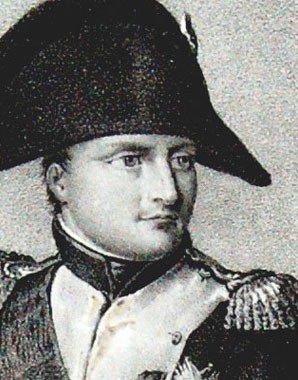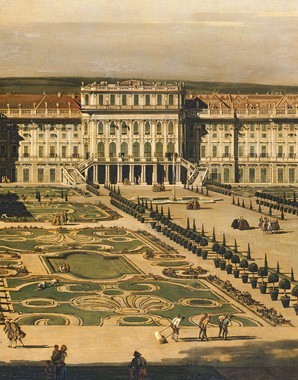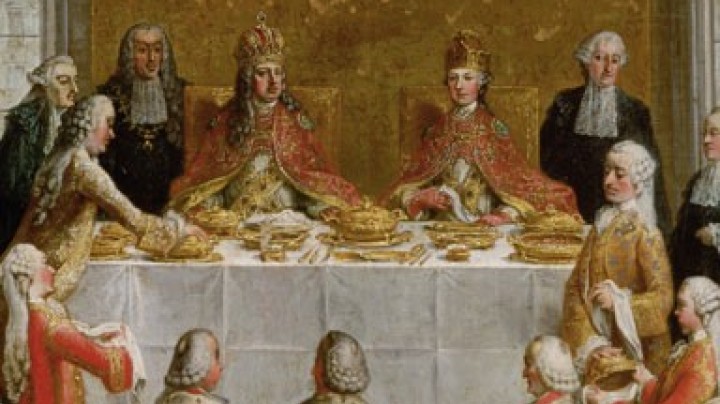Napoleon at Schönbrunn Palace
Whilst expanding his territories – and fighting many battles – Napoleon twice stayed in the Austrian capital city of Vienna. On those occasions he set up his quarters in Schönbrunn Palace. Schönbrunn was also the site of a failed attempt upon his life.
One year after his declaration of war on Austria Napoleon’s troops occupied Vienna on 14 November 1805, and the French emperor stayed at Schönbrunn Palace for a few days. Following his victory at Austerlitz Napoleon quartered himself and his army at Schönbrunn from 12 to 27 December. On 15 December, instead of an alliance, a treaty of friendship was concluded at Schönbrunn between Napoleon and Austria and celebrated with a concert in the palace theatre. Following the end of the peace negotiations at Pressburg on 27 December Napoleon departed, to Vienna’s intense relief.
Four years later, on 10 May 1809, Napoleon occupied the imperial capital for a second time, again taking up his quarters at Schönbrunn. This time there is documentary evidence of which rooms in the palace he occupied: the Hall of Ceremonies served as his audience chamber, the Blue Chinese Salon as his drawing room; the Vieux Laque Room was used as a drawing room or a study, the adjoining room – today known as the Napoleon Room – as his bedroom, and the Porcelain Room served him as a study, as in Maria Theresia’s time. On both his visits, Napoleon complained that it was poorly appointed but nevertheless declared himself impressed by the “truly royal [sic; it was of course an imperial palace] residence”. During his second sojourn Napoleon attended several performances at the palace theatre. His arrival there was always announced with a drum roll; afterwards he took his place in his box, holding a copy of the text. Napoleon also attended performances of German operas, although his preference was for Italian opera. It was rare for a complete opera to be performed; as a rule there was usually only one act followed by a ballet. Even if he was displeased by the play, he always showered the actors with gifts.
During his second stay, which lasted several months, Napoleon often inspected parades of his troops in the morning, an event that soon became a popular attraction for the inquisitive Viennese populace, as it provided the best opportunity of seeing the French emperor who otherwise rarely appeared in public. Even Franz Grillparzer, a declared enemy of the French, hardly ever missed one of these parades at Schönbrunn or at the Schmelz parade ground. He was impressed by Napoleon’s appearance, admitting that he fascinated him “with a magic power” and put him “under a spell as a snake does a bird”.
At one of these parades an assassination attempt on Napoleon was narrowly averted by the alertness of his officers. Friedrich Staps, a pastor’s son from Erfurt, tried to kill the French emperor with a knife he had concealed inside his jacket as Napoleon was holding the review on the steps of the Parade Court at Schönbrunn. The young man was executed according to martial law although Napoleon initially believed him to be insane. After this incident tickets for the parades were no longer issued, in order to lessen the risk.















